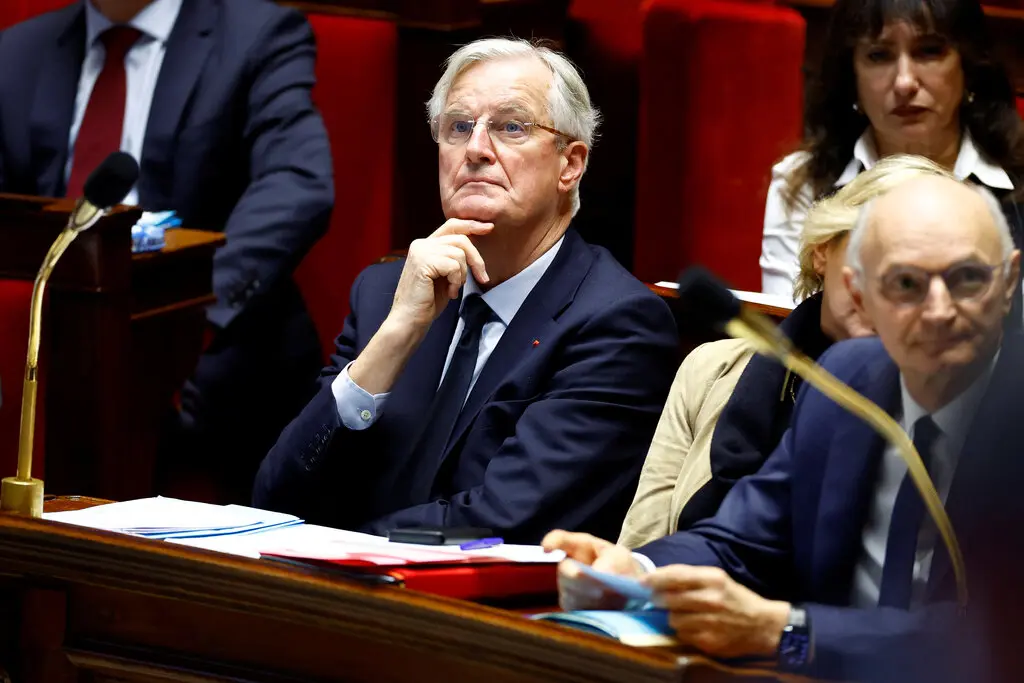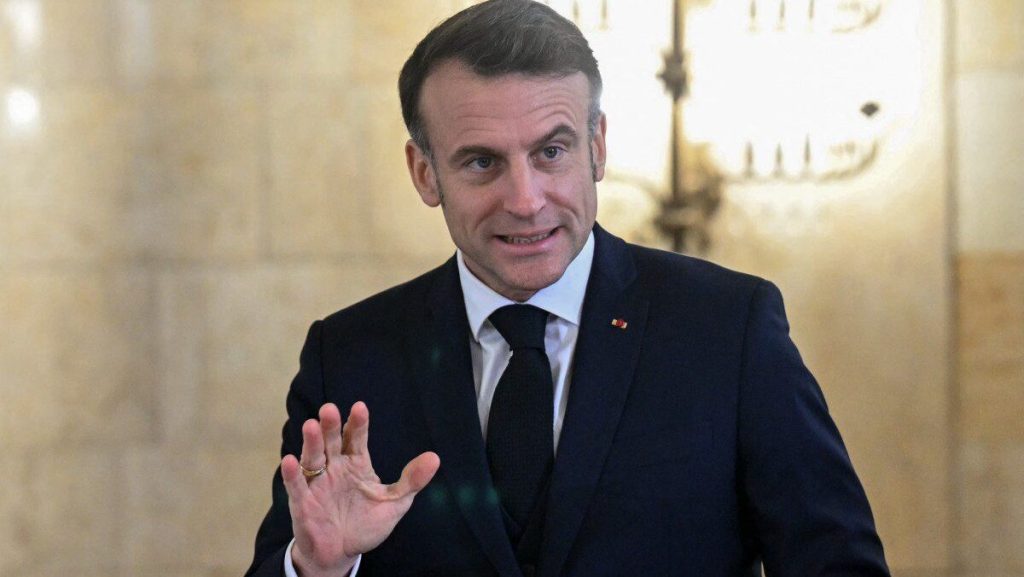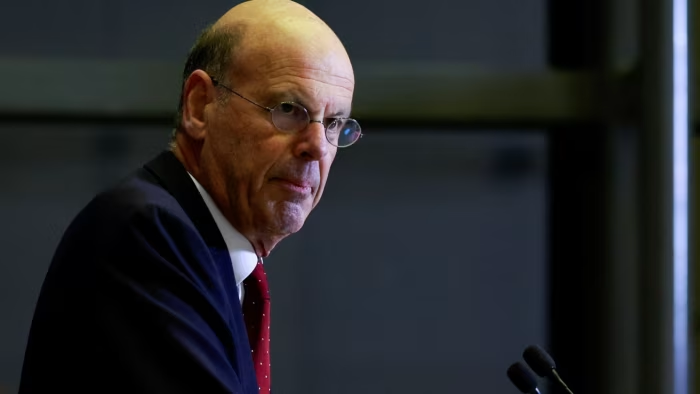France’s Government Faces a No-Confidence Vote Over Budget Bill

In a crucial moment for French politics, the French government is facing a no-confidence vote over its controversial budget bill. This challenge, which comes amid growing discontent and political division, threatens to destabilize the government’s control over the legislative agenda. The no-confidence vote is a direct consequence of the contentious 2024 budget bill, which has sparked protests and debates over its economic implications and its impact on French citizens. As the French parliament prepares to vote, the outcome could significantly influence the future direction of President Emmanuel Macron’s administration.
The Budget Bill: Key Details
The budget bill at the heart of the controversy outlines the French government’s fiscal policies for the upcoming year, including proposed changes to taxes, public spending, and social programs. The proposed budget is part of President Macron’s broader economic vision, which includes efforts to reduce the national debt and improve France’s financial stability. However, the budget has faced fierce criticism from various political factions, trade unions, and civil society groups, who argue that it disproportionately affects low- and middle-income citizens.
One of the most contentious aspects of the budget is its plan to introduce cuts to public services, particularly in health and education. These cuts have sparked fears that vital services may be underfunded, potentially exacerbating inequality and leading to further social unrest. Additionally, the government’s proposed tax changes have drawn the ire of opposition parties, with many accusing Macron’s administration of favoring the wealthy while imposing additional burdens on ordinary citizens.
The No-Confidence Motion: Political Maneuvering
The French government, led by Prime Minister Élisabeth Borne, has found itself at odds with several opposition parties, which have united in their efforts to challenge the budget. The no-confidence vote is a direct response to the government’s handling of the budget bill, with opposition leaders arguing that the bill is unfair and undemocratic. The vote will be an important test for Borne’s leadership, as well as for the political stability of Macron’s second term.
In the French political system, no-confidence votes are a powerful tool for holding the government accountable. If the opposition parties can secure a majority of votes, the government could be forced to resign, potentially leading to a reshuffling of leadership or even a new election. Given the current composition of the French National Assembly, where Macron’s centrist party, La République En Marche (LREM), holds a significant but not overwhelming number of seats, the outcome of the vote is uncertain.
For the opposition, this no-confidence motion presents an opportunity to challenge the policies of a government that has faced growing discontent since the protests of the Yellow Vests Movement in 2018. The protests, which were sparked by fuel tax hikes, became a broader expression of frustration with Macron’s economic policies, which many perceived as favoring the rich while neglecting the needs of ordinary citizens. The proposed budget has revived these sentiments, fueling widespread anger and giving the opposition parties a platform to voice their criticisms.
Opposition Parties Unite Against the Budget
A key factor in the no-confidence vote is the unity of opposition parties across the political spectrum. While these parties often disagree on fundamental issues, they have come together in a rare show of solidarity against the budget. Parties ranging from the left-wing France Insoumise (Unsubmissive France), led by Jean-Luc Mélenchon, to the right-wing National Rally (RN), led by Marine Le Pen, have voiced their opposition to the government’s fiscal policies.
Mélenchon, who ran for president in 2022 on a platform of social justice and anti-austerity measures, has been vocal in his criticism of Macron’s economic agenda. He and his supporters argue that the budget will deepen social inequalities and undermine workers’ rights. Mélenchon has called for a reevaluation of France’s fiscal policies, including higher taxes on the wealthy and greater investment in public services.
On the other side of the political spectrum, Marine Le Pen, who has positioned herself as a champion of the working class and a critic of the European Union’s influence on French policies, has also opposed the budget. She argues that Macron’s austerity measures are harming the French people and benefiting multinational corporations. Le Pen’s party, the National Rally, has been gaining ground in recent elections, particularly in working-class areas, and her criticism of the government has resonated with voters disillusioned with Macron’s policies.
Despite their ideological differences, the cooperation between these opposition parties underscores the widespread dissatisfaction with the current administration’s approach to governance. The no-confidence vote represents a convergence of diverse political factions united by their desire to force the government to reconsider its budget and fiscal policies.
Implications of the No-Confidence Vote
The outcome of the no-confidence vote will have significant implications for both the French government and the broader political landscape. If the motion passes and the government is forced to resign, it could result in political turmoil and further instability. Macron’s presidency, already weakened by protests and a loss of majority in the National Assembly, could face a crisis of legitimacy. A government resignation might lead to a new coalition or a reevaluation of the political order, potentially even leading to new elections.
On the other hand, if the no-confidence vote fails, Prime Minister Borne and President Macron will likely see it as a victory, allowing them to push through the budget and other legislative priorities. A successful defense of the government’s policies would demonstrate that the administration still has political support and can maintain control over the National Assembly. It would also signal that the opposition is unable to mount an effective challenge to Macron’s leadership, at least in the short term.
Regardless of the outcome, the no-confidence vote will likely have lasting political consequences. For the opposition, it is an opportunity to assert itself and challenge the policies of an administration that has been in power for several years. It could help galvanize public support for opposition parties, especially if protests and demonstrations continue in response to the budget’s proposed cuts. For Macron and his government, it is a chance to demonstrate resilience and push through crucial reforms, but it also serves as a reminder that his political mandate is increasingly fragile.
The French Political Landscape and Macron’s Future
The no-confidence vote comes at a time when President Macron’s political fortunes are uncertain. His party, La République En Marche, lost its parliamentary majority in the 2022 legislative elections, leading to a period of political fragmentation and gridlock. Since then, Macron has struggled to secure support for key initiatives, and his popularity has taken a hit due to growing protests and dissatisfaction with his economic policies. The budget debate is yet another challenge for Macron, as it highlights the divide between his government’s centrist, pro-business agenda and the demands for more progressive policies from the left and populist rhetoric from the right.
The political opposition, emboldened by this crisis, may use the budget debate and no-confidence vote as a springboard to rally support for upcoming elections, including regional elections in 2025 and the next presidential election in 2027. The challenge for Macron and his government will be to navigate these turbulent political waters and find ways to regain public confidence, whether through policy concessions or broader political reforms.
France’s government is at a crossroads as it faces a no-confidence vote over the 2024 budget bill. The outcome of the vote will have far-reaching implications for the future of President Macron’s administration, the stability of the French government, and the broader political landscape in France. Whether the opposition succeeds in toppling the government or Macron’s team survives this challenge, it is clear that the political divisions in France are deepening, and the budget bill will continue to be a focal point of debate and protest in the coming months. The no-confidence vote marks a critical moment in the ongoing battle for control over France’s economic future and political direction.






